Suspected hare coursers ordered out of Lincolnshire
- Published
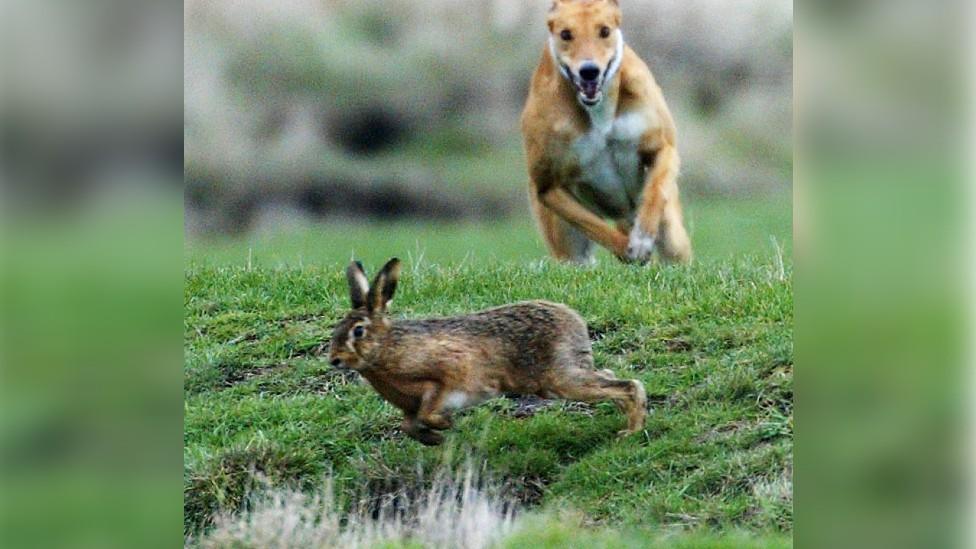
Hare coursing has been illegal throughout the UK since 2005
A second county-wide dispersal order has been issued by police in Lincolnshire after multiple reports of hare coursing.
Lincolnshire Police issued an initial 48-hour order on Monday, before extending it on Wednesday.
Under the order, suspected hare coursers can be told to leave the county, and face arrest if they return.
The force said the action was in response to "the number of hare coursing reports we are receiving".
Lincolnshire is one of the areas most frequently targeted by coursers due to its flat, rural areas.
According to police, coursers are often engaged in illegal betting involving large sums of money and the dogs involved can also be worth thousands of pounds.
The force can also seize dogs if someone is caught in the act, with the tactic described as one of "the most effective deterrents".
Drones and off-road vehicles have also been used by officers to tackle the problem.
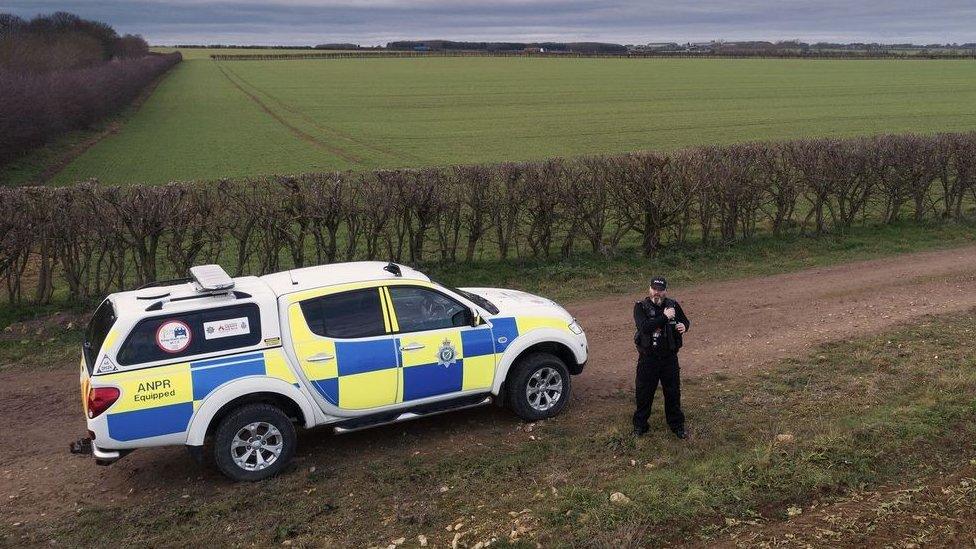
Lincolnshire is one of the areas most frequently targeted by coursers
Traditionally hare coursing offences start to rise in the autumn after crops have been harvested, and continue until the end of the season in spring.
More than 1,000 suspected incidents were reported in Lincolnshire between December last year and February 2021.

What is hare coursing?
The coursers will walk along the field to frighten the hare into the open
The dog catches the hare and kills it by "ragging" it - shaking the animal in its teeth
The dogs - usually greyhounds, lurchers or salukis - are on a slip lead, threaded so it can be easily released
The dead hare is usually left in the field or thrown in a ditch
Since 2005, hare coursing has been illegal throughout the UK. The Hunting Act 2004, external makes it an offence to hunt wild mammals with dogs
Source: Lincolnshire Police

Related topics
- Published3 October 2020
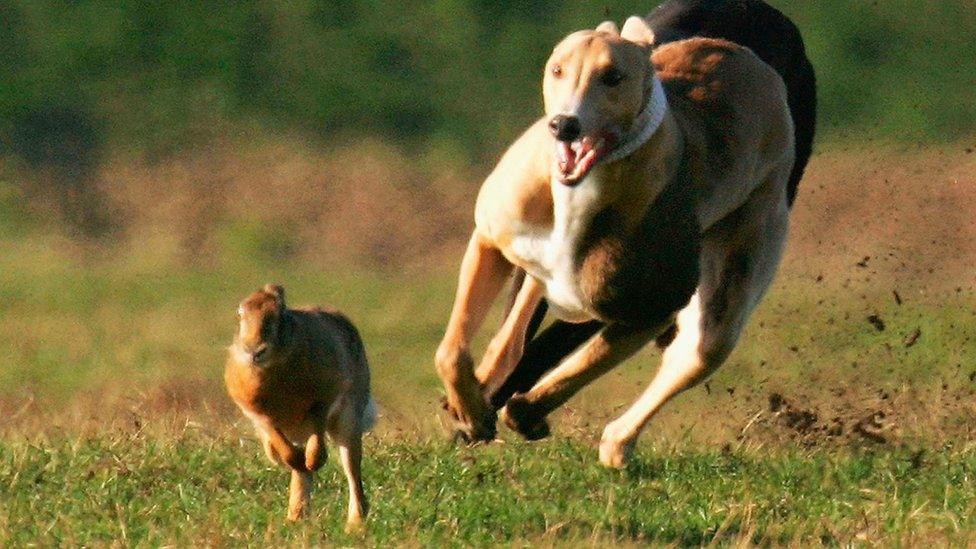
- Published13 February 2019
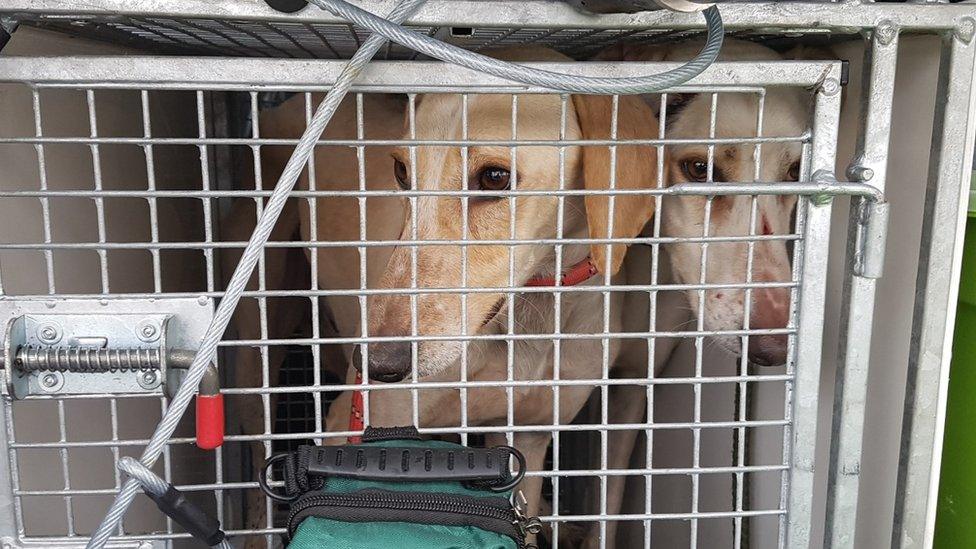
- Published22 December 2017

- Published29 September 2017
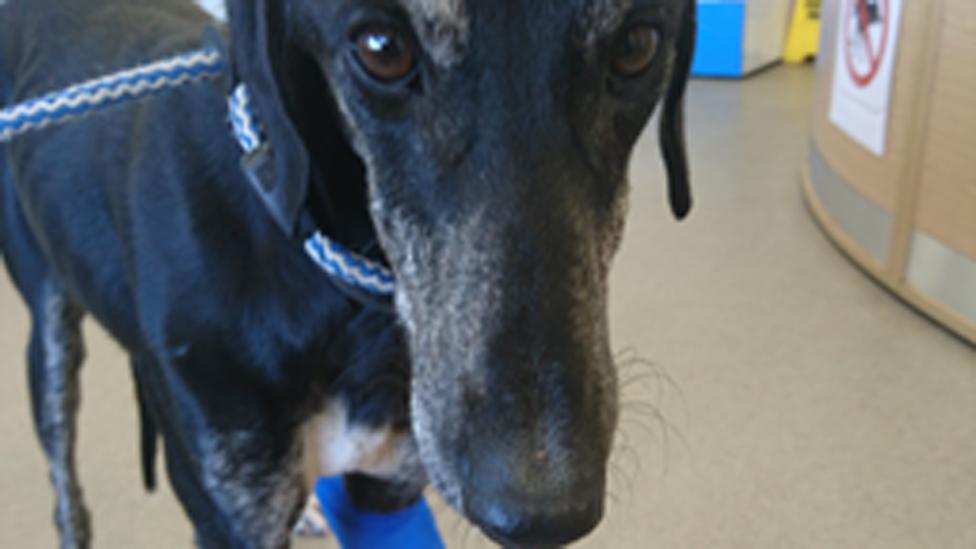
- Published6 September 2017
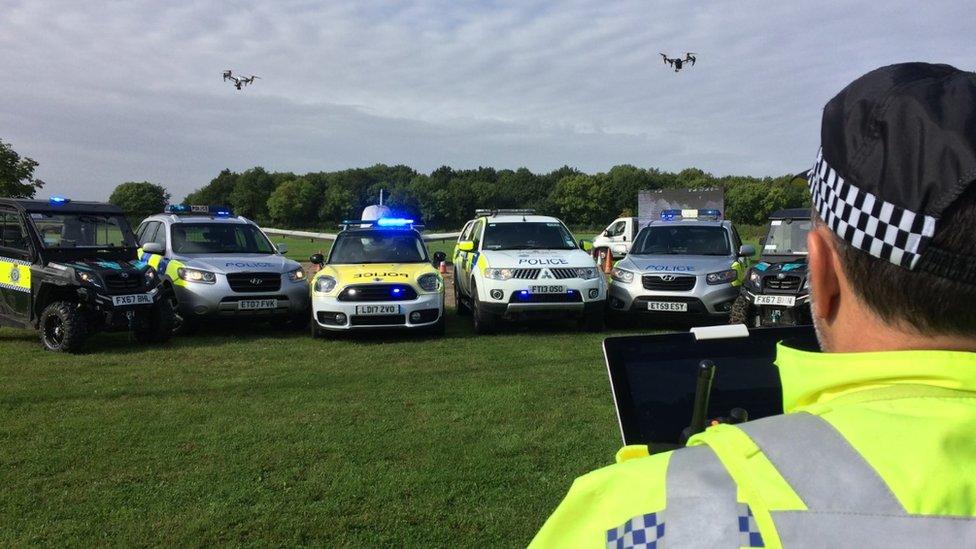
- Published6 January 2017
